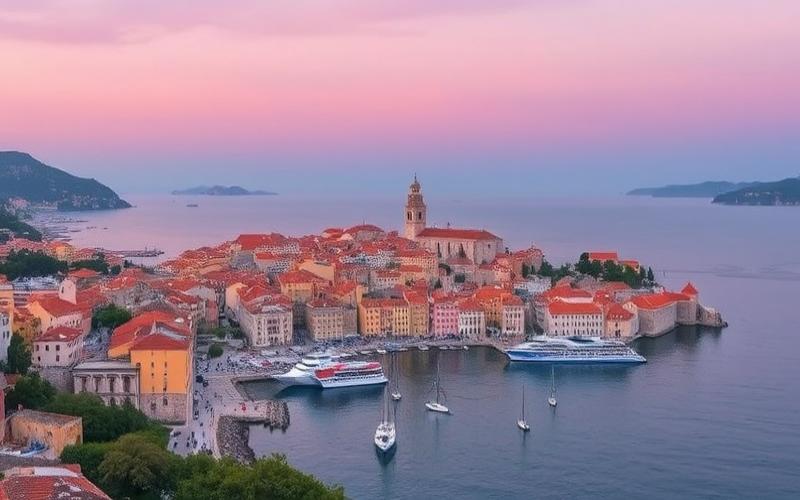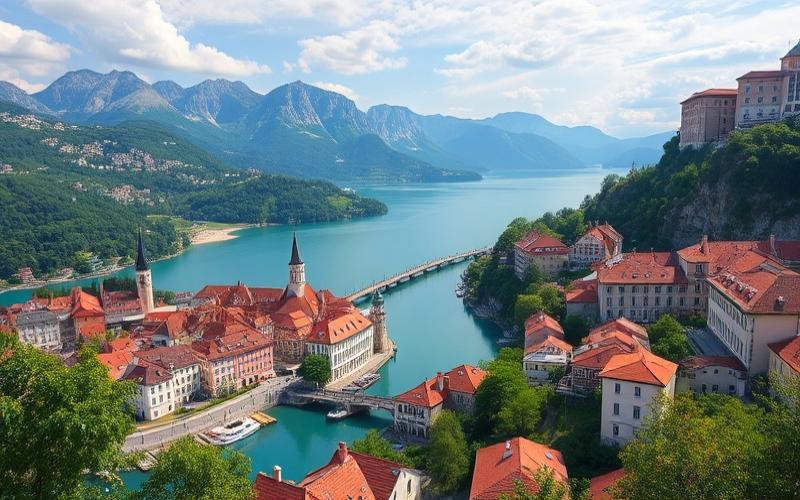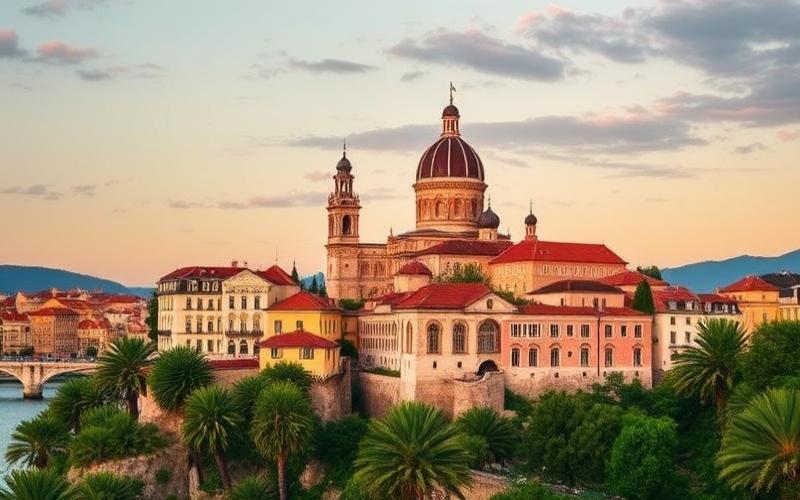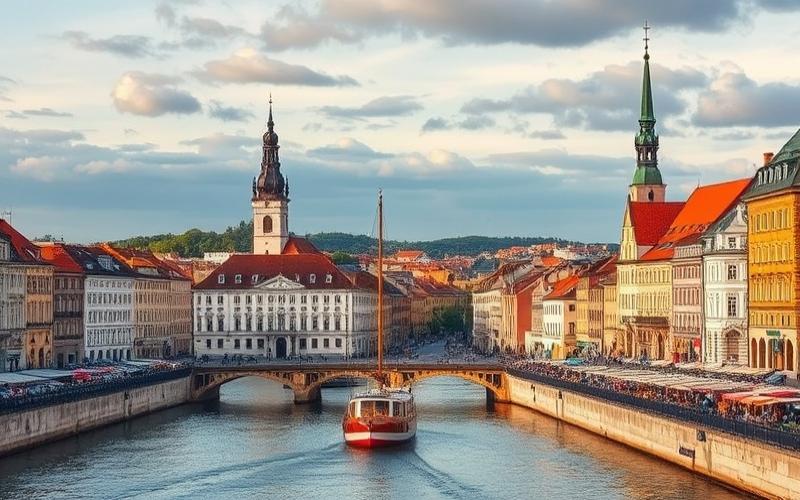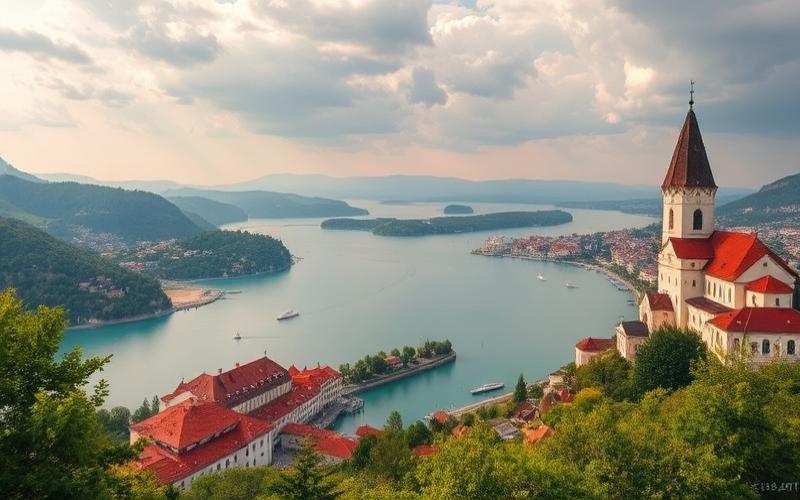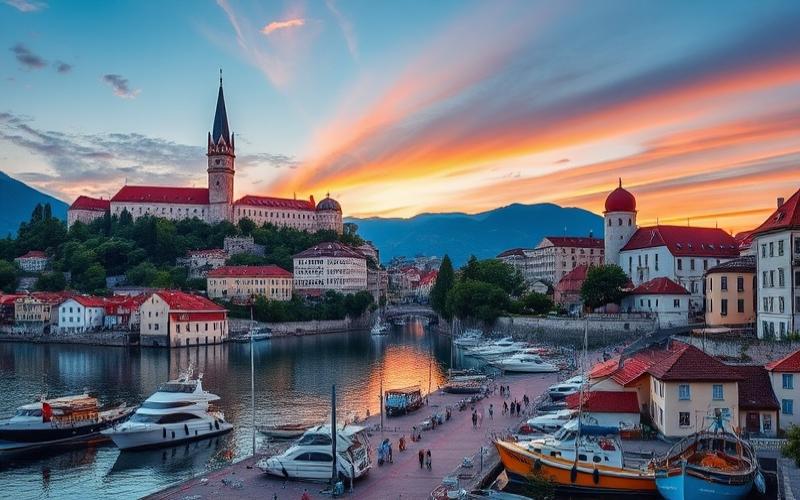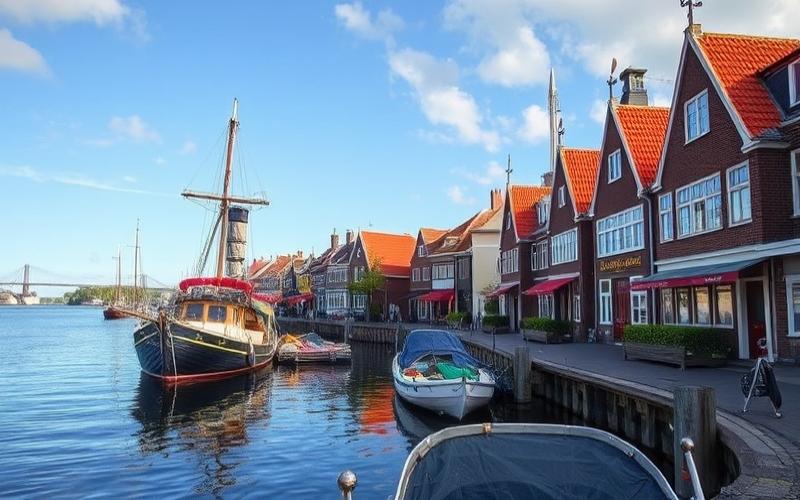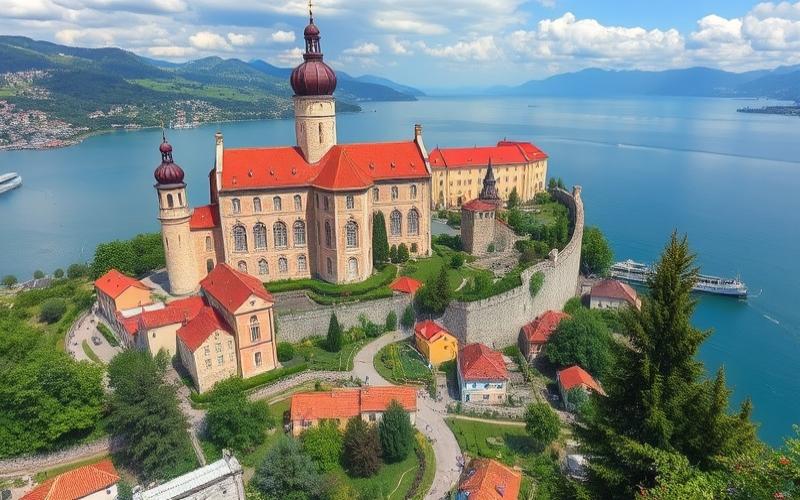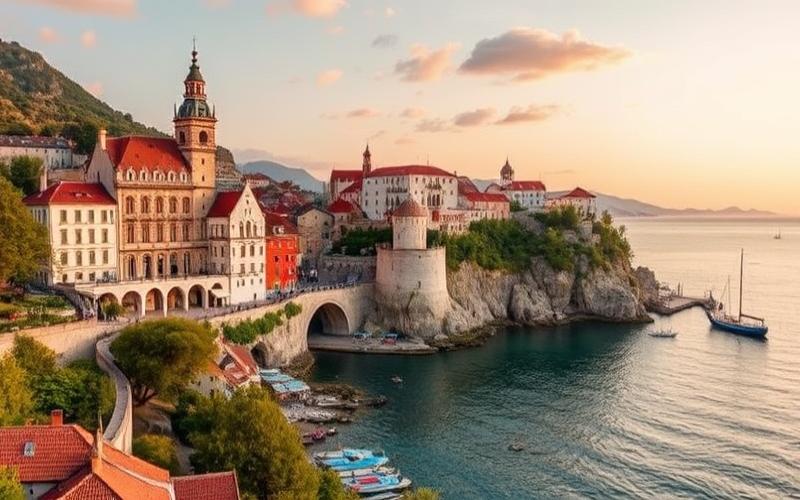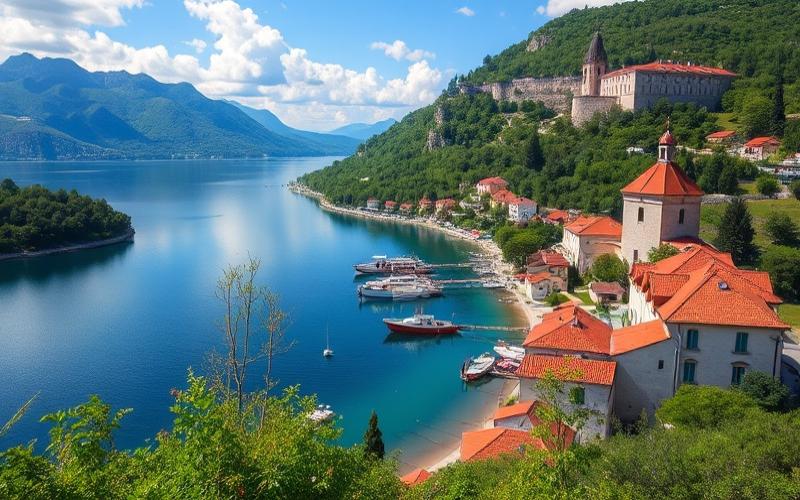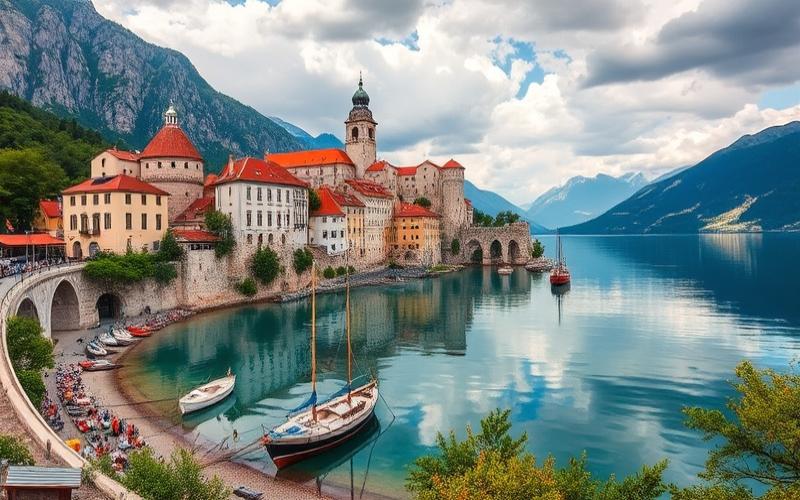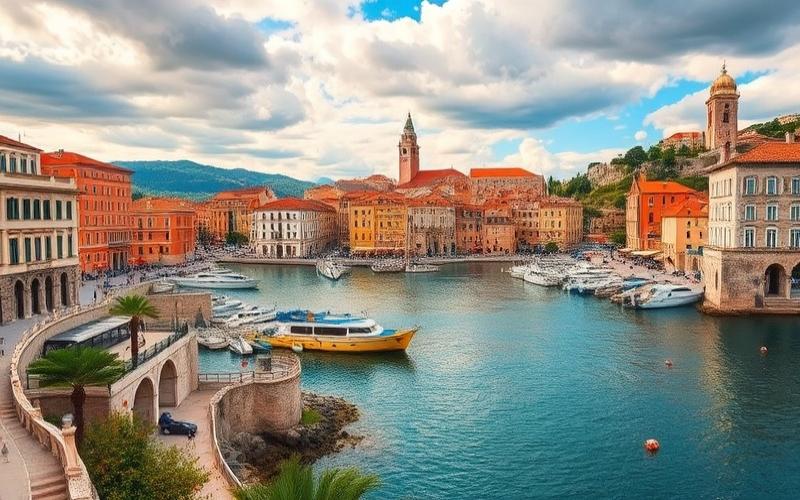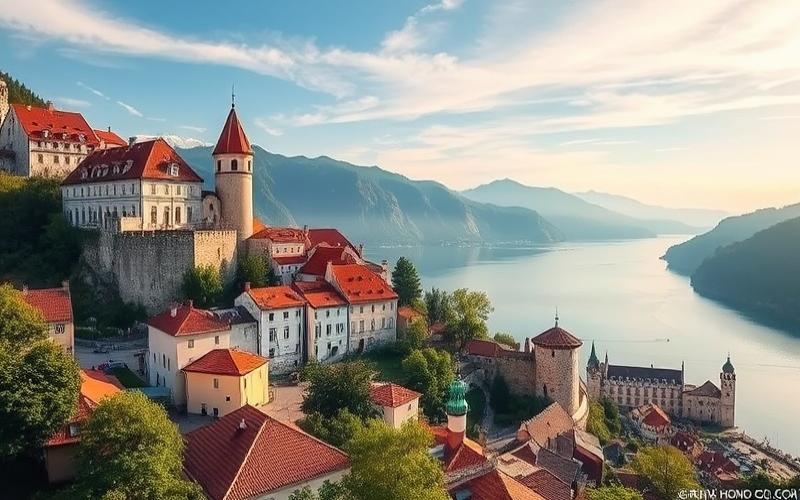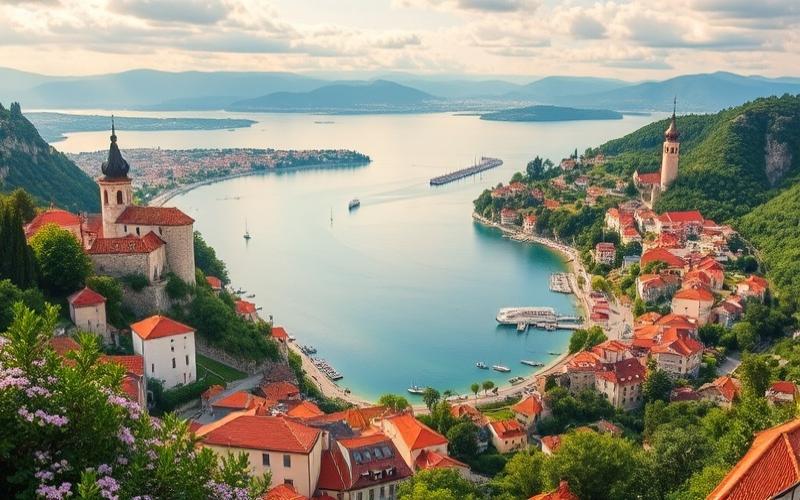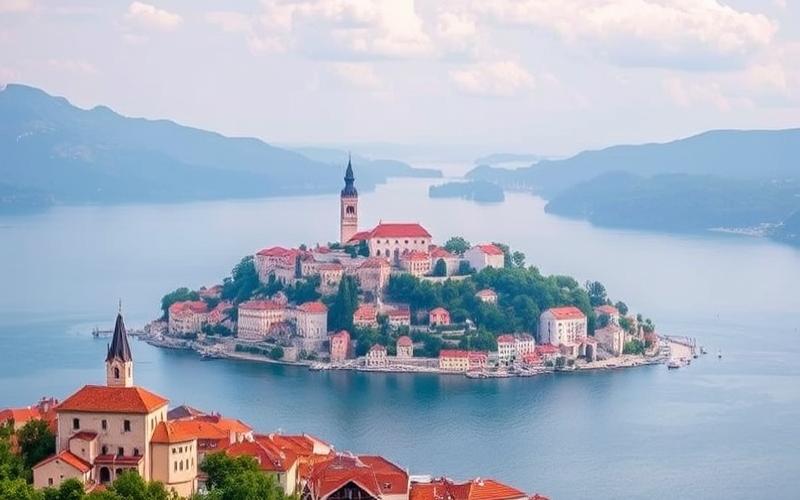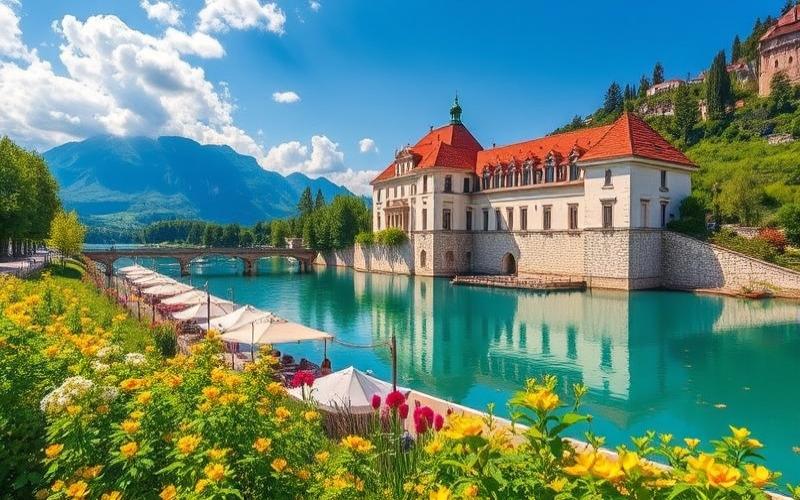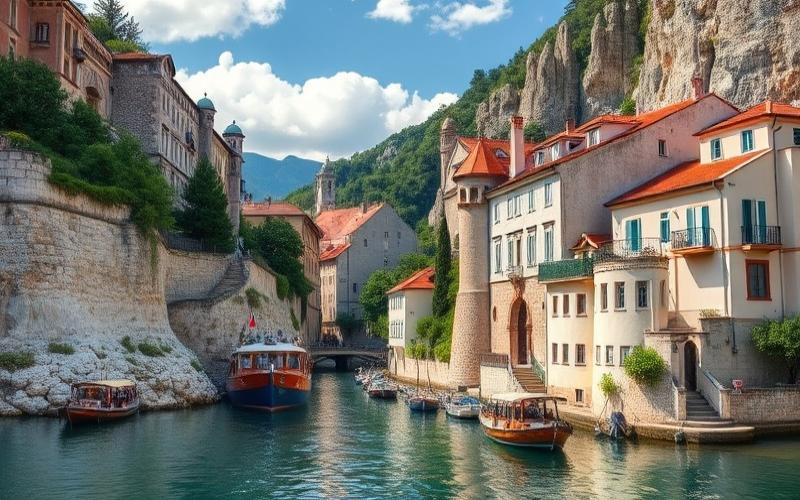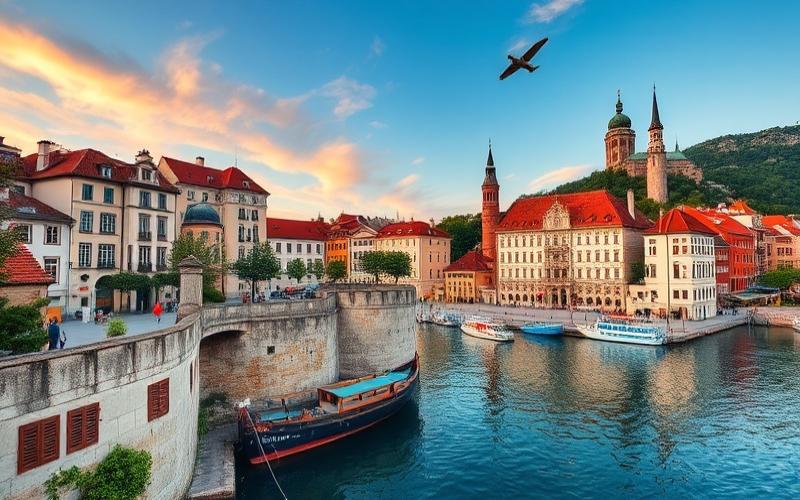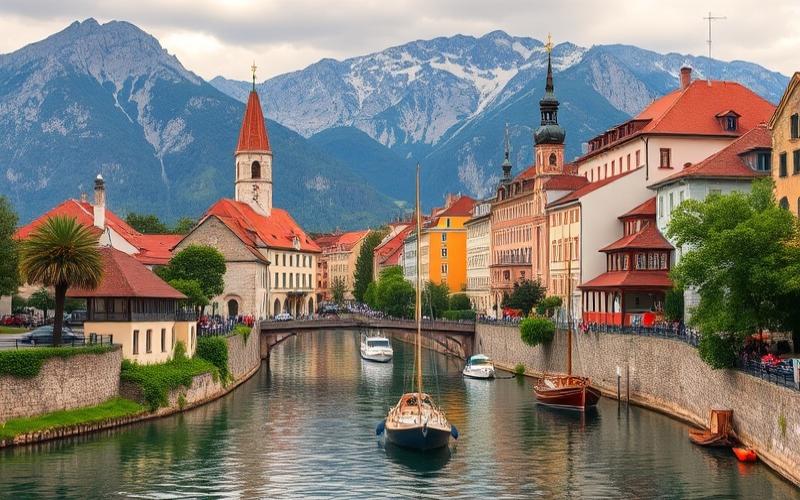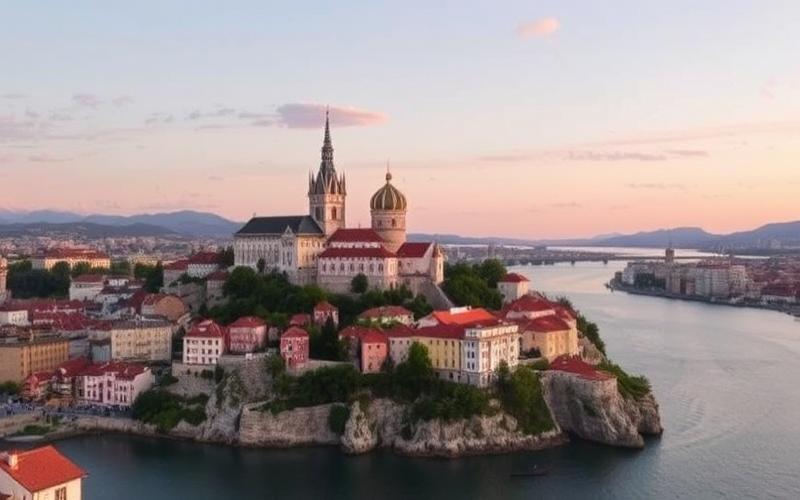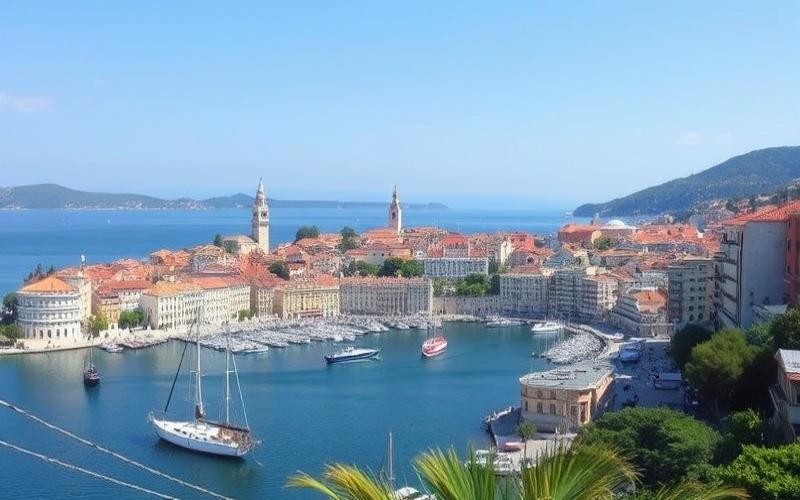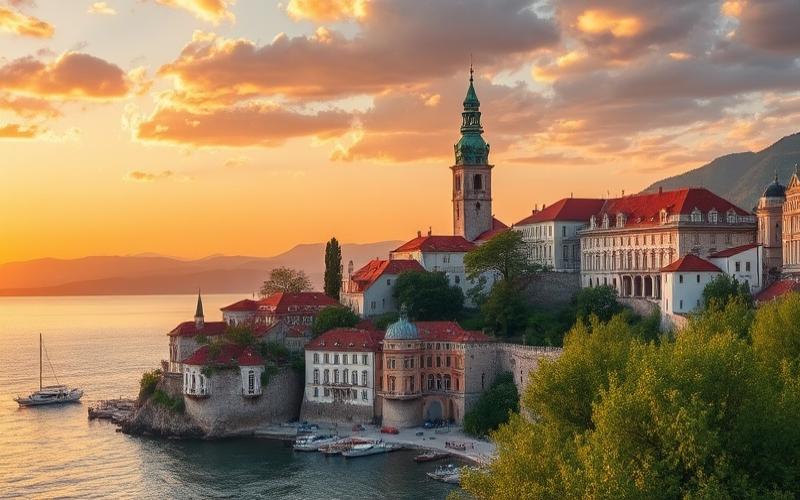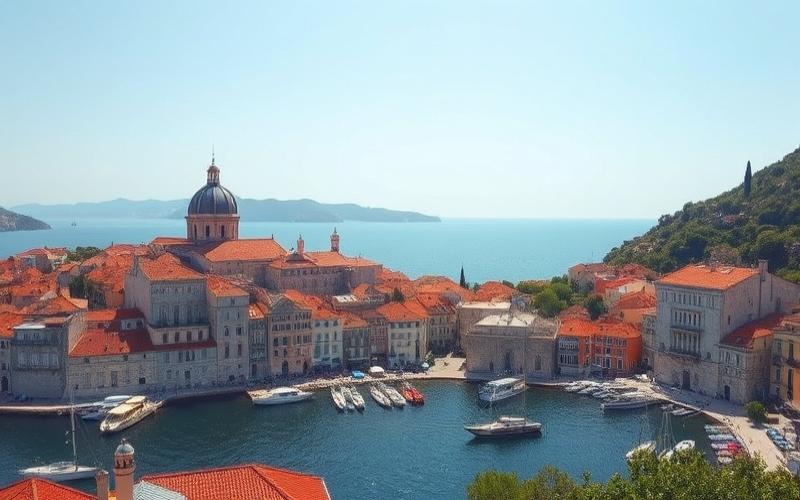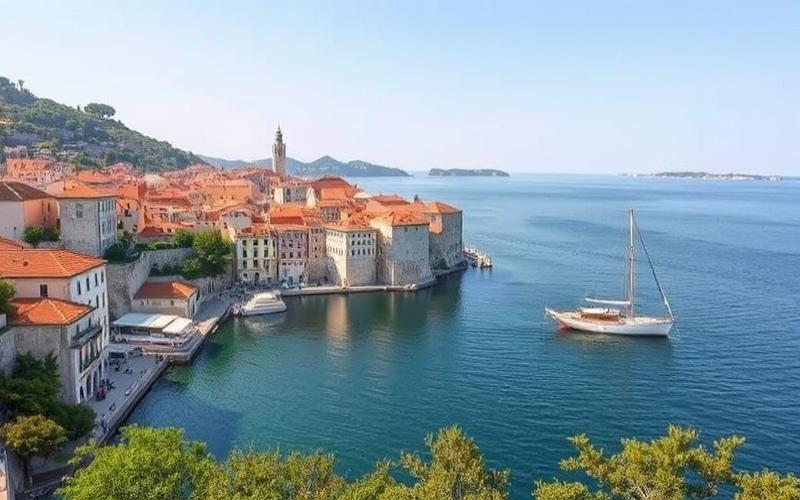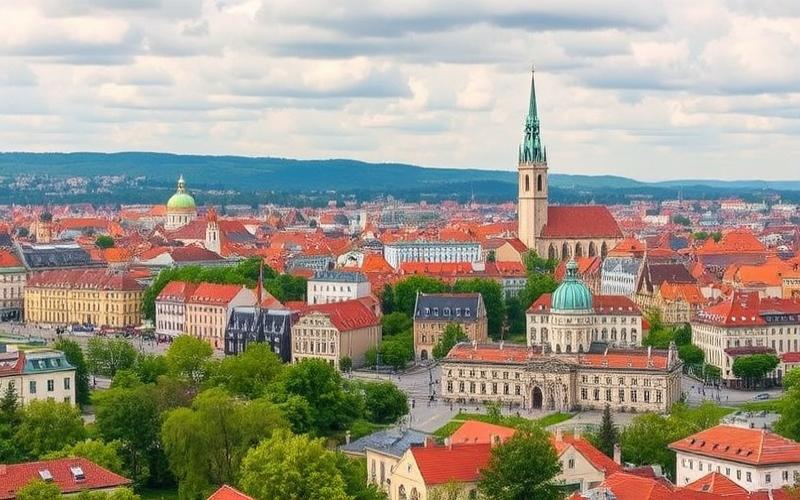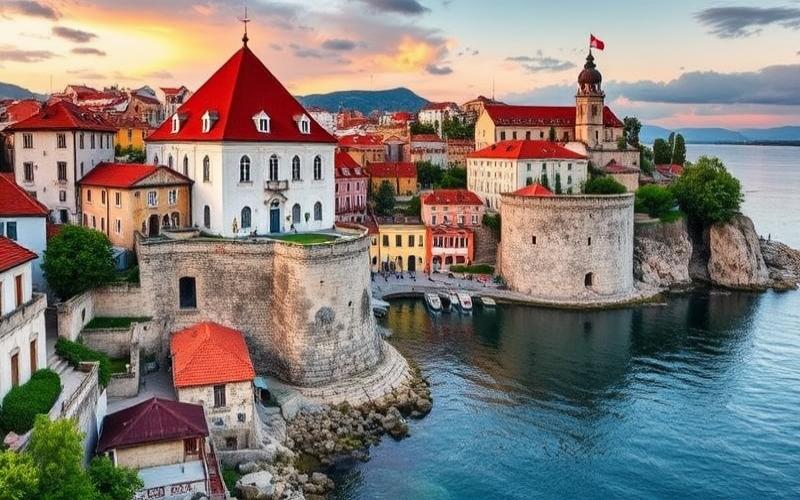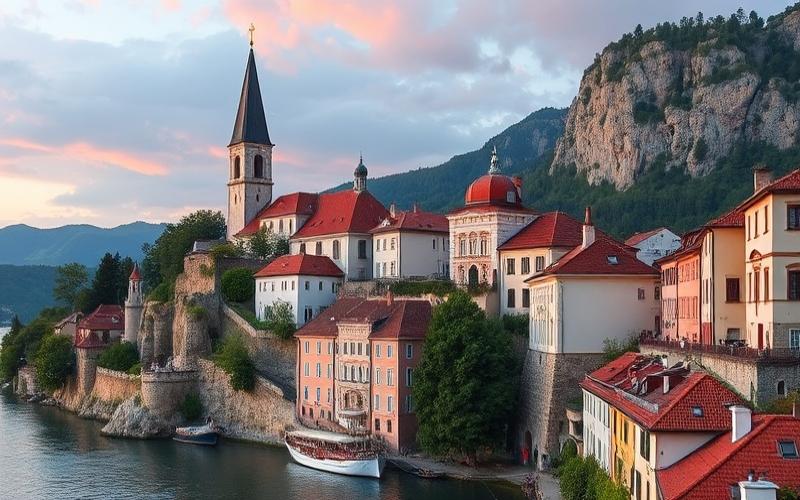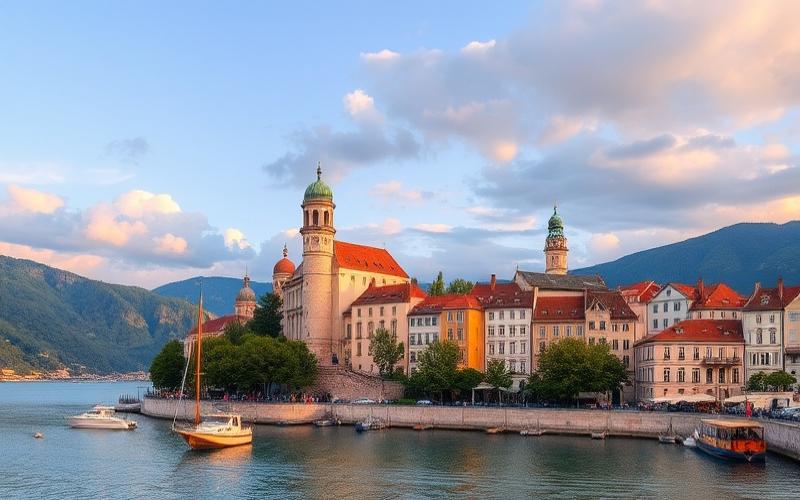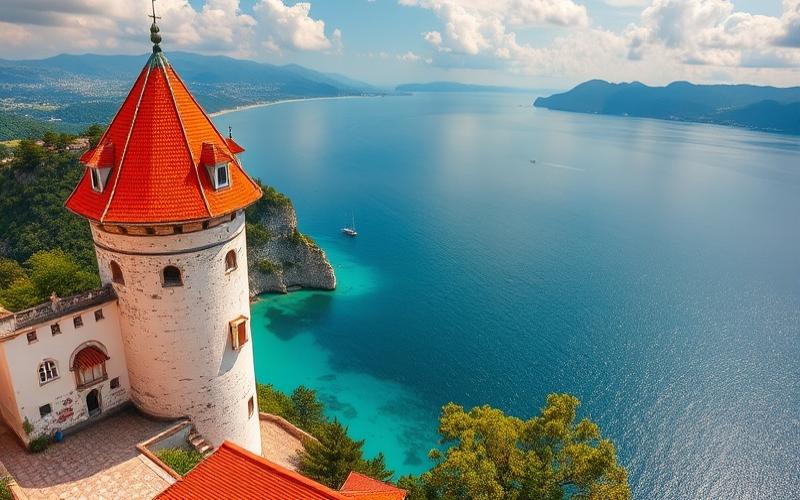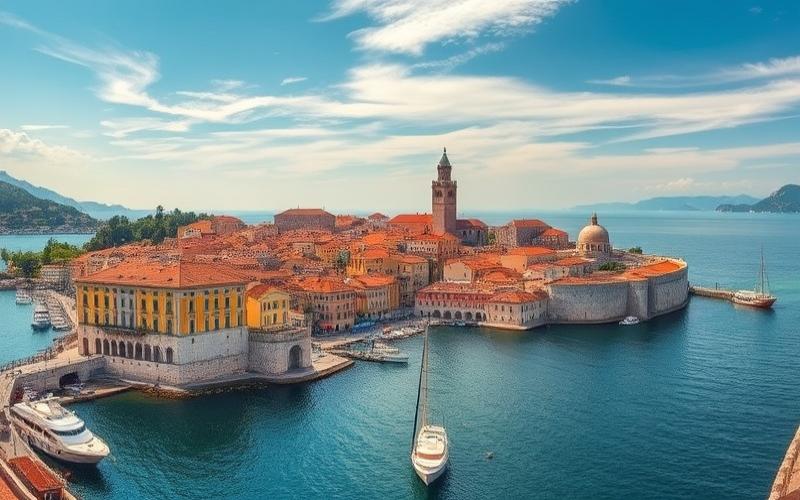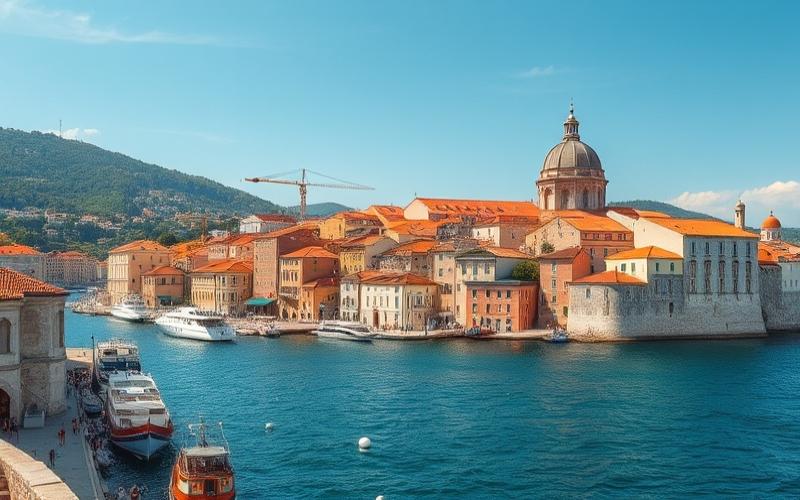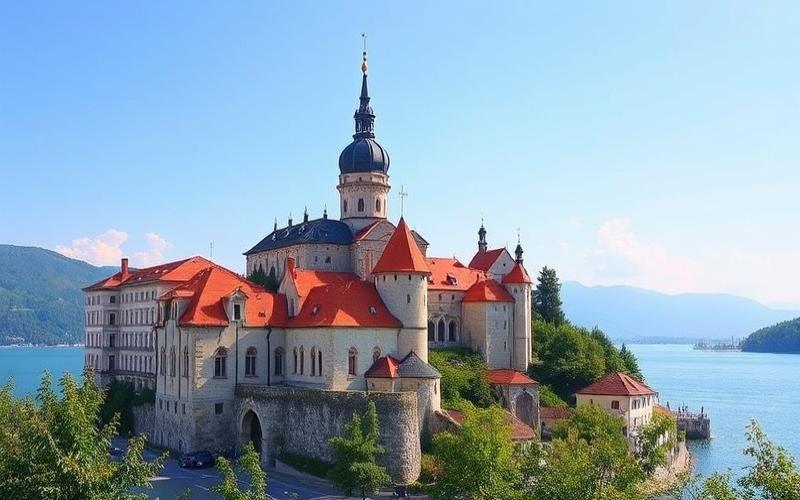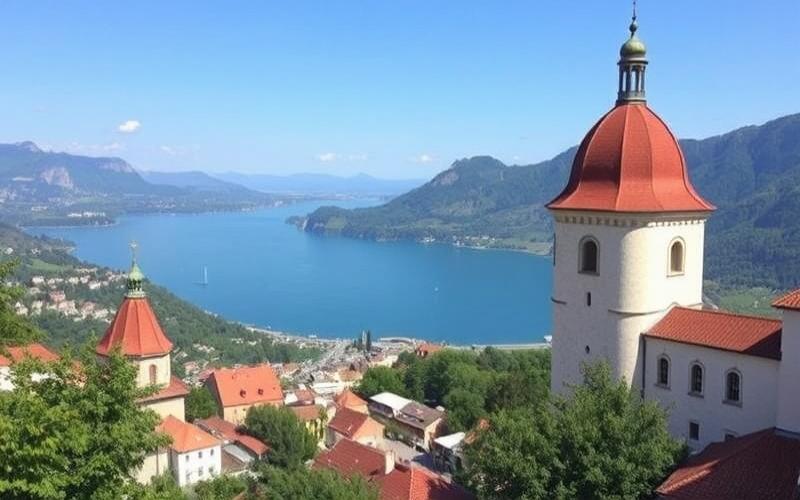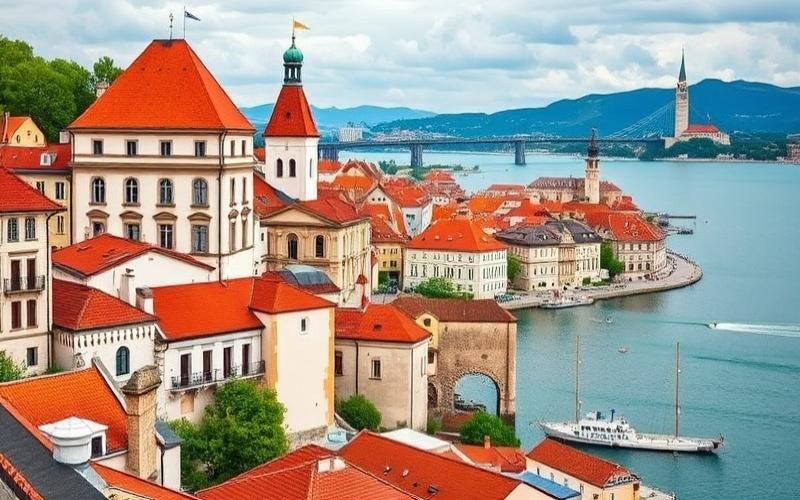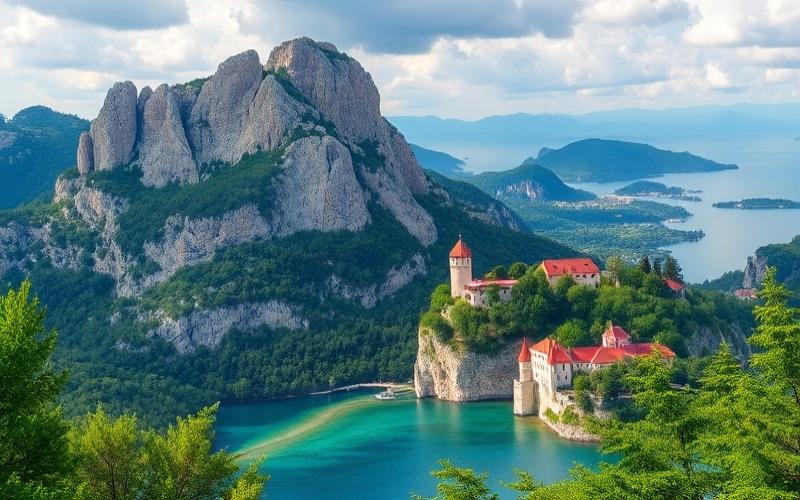
 Published on and written by Cyril Jarnias
Published on and written by Cyril Jarnias
Croatia, with its picturesque landscapes and cultural richness, has become a sought-after destination for digital nomads, those independent workers who practice their profession while traveling. This growing phenomenon has notable repercussions on the local rental market, attracting the attention of both property owners and traditional tenants.
With the rise of this nomadic lifestyle, many Croatian cities, once little-known internationally, are seeing increased demand for short-term housing, thus influencing housing prices and availability. This raises essential questions about the sustainability of this rapidly changing market and the challenges faced by local stakeholders.
Understanding the Digital Nomad Phenomenon in Croatia
A digital nomad is a person who works remotely using digital technologies while traveling and regularly changing their place of residence. They are often independent professionals, freelancers, or employees with significant flexibility, primarily using the internet to conduct their business from spaces such as cafes, temporary accommodations, or coworking spaces. This lifestyle offers unprecedented geographical freedom and relies on the ability to access reliable Wi-Fi anywhere in the world.
Croatia has become a particularly popular destination for digital nomads for several key reasons:
- Affordable cost of living: Compared to Western Europe, Croatia offers attractive prices for housing, dining, and transportation.
- Internet quality: The country provides widespread access to high-speed internet in major cities as well as in many public and private spaces.
- Cultural richness and exceptional natural setting: Historic cities like Dubrovnik or Split, a renowned Mediterranean coastline, and varied landscapes provide a stimulating environment both professionally and personally.
- Favorable government initiatives:
- Implementation of a specific visa allowing non-European digital nomads to reside for up to 12 months with the possibility of renewal.
- Simplification of administrative procedures (e.g., online application).
- Active promotion of the country to international communities.
The Lifestyle of Digital Nomads in Croatia
The typical lifestyle of digital nomads in Croatia is characterized by:
- Constant search for balance between productive work (usually via laptop/tablet) and exploring the local area during free time
- Frequent use of collaborative spaces (coworkings) established notably in Zagreb, Split, or on the Dalmatian coast
- Participation in social events organized by/with other expatriates to break professional isolation
Communities and Local Support
Dynamic local communities support this trend through:
- Regular creation of networking workshops
- Organization of thematic events dedicated to sharing professional experiences
- A strong presence on social media facilitating logistical support (temporary housing, administrative advice…)
Opportunities and Challenges for Croatia
| Opportunities | Challenges |
|---|---|
| Economic diversification | Increased pressure on the urban rental market |
| International promotion of the territory | Inflationary risk for local residents |
| Rapid development of the digital sector | Variable social integration depending on regions |
| Strengthening of off-season tourism | Regional inequalities regarding internet access |
The phenomenon attracts skilled foreign talent who contribute to local dynamism but also raises the crucial question: how to balance international attractiveness and preservation of the local social fabric in the face of a tight real estate market?
Good to know:
Digital nomads, mobile workers using technology to operate remotely, find Croatia an attractive setting thanks to its affordable cost of living, good internet quality, and cultural richness. Croatia has captured the attention of these professionals with a special digital nomad visa and the welcoming of active communities that offer support and networking. This emerging phenomenon generates new challenges and opportunities for the country, as it influences the rental market with increased demand for medium-term accommodations. However, this growing popularity can also drive up rents, affecting local residents. Enjoying co-working spaces and building connections with the local culture are characteristic aspects of the digital nomad lifestyle in Croatia, allowing them to integrate while working remotely.
The Rise of Coliving for Digital Nomads in Croatia
Croatia has become a destination of choice for digital nomads thanks to a set of distinctive assets: moderate cost of living, efficient digital infrastructure (WiFi accessible everywhere), Mediterranean climate, high safety, and a strong tradition of tourist hospitality. Over 80% of the population speaks English, facilitating the integration of international workers.
Main reasons for success among digital nomads:
- Cost of living lower than most European countries
- Easy access to high-speed internet throughout the country
- Pleasant climate and attractive natural environment
- Thriving international community
- Simplified acquisition of the digital nomad visa
The rise of coliving in Croatia perfectly meets the specific expectations of digital nomads. This hybrid housing model combines private spaces (individual rooms) and shared areas (living rooms, kitchens, coworking), creating a balance between privacy and community.
Main needs fulfilled by coliving
- Flexibility: Monthly or weekly rentals, without long-term commitment
- Controlled costs: All-inclusive rates (rent + utilities + services), often lower than traditional rentals
- Socialization: Regular organization of community events, professional and friendly opportunities
- Simplified logistics: Furnished accommodations with centralized administrative management
Comparison Table: Coliving vs. Traditional Rental
| Criterion | Coliving | Traditional Rental |
|---|---|---|
| Flexibility | High | Low |
| Cost | Moderate/all-inclusive | Variable/separate utilities |
| Socialization | Strong | Weak |
| Services | Included | Not included |
| Contract Duration | Short/medium | Long |
Flagship projects illustrate this trend like Digital Nomad Valley Zadar, a dedicated village offering private studios or shared housing with integrated coworking access and social events. Other spaces like Mapmelon offer a national selection of colivings suited to various profiles: remote workers, freelancers, or entrepreneurs.
Concrete Examples:
- Digital Nomad Valley Zadar: equipped cottages with fast WiFi, on-site coworking, dynamic international community.
- Mapmelon Croatia: national network grouping various urban/rural colivings with private rooms and themed common spaces.
The impact on the local rental market is significant:
Effects on Local Real Estate Supply & Demand
- Increase in specialized supply for short/medium stays
- Diversification towards furnished/flexible housing rather than traditional annual leases
- Temporary rise in rents in attractive/touristic cities
The development of coliving also generates a positive effect on the local economy through:
- Direct stimulation of the real estate sector.
- Job creation around the management/animation of residences.
- Emergence of a shared economy where local businesses benefit from an active clientele year-round.
In summary,
Croatian coliving is shaping a new residential dynamic that attracts international talent while revitalizing local markets through social innovation and collaborative economic redistribution.
Good to know:
Croatia has become a preferred destination for digital nomads thanks to its pleasant climate, affordable cost of living, and attractive tax incentives, which has led to a notable increase in coliving. Specifically responding to the needs of digital nomads seeking flexibility, controlled costs, and socialization, these spaces combine shared housing and adapted workspaces. Projects like Zadar Coworking & Coliving and Nest Coworking in Dubrovnik illustrate this trend, offering infrastructure designed for short-term stays. The rise of coliving is changing the rental market by intensifying the demand for flexible housing, thereby reducing the supply for permanent residents. Economically, this trend favors the shared economy and generates additional income by stimulating local commerce and creating new investment opportunities.
The Impact of Digital Nomads on the Local Rental Market
A digital nomad is a professional who works remotely using digital technologies, often for foreign companies or as a freelancer, while traveling or temporarily residing in different countries. Croatia particularly attracts these workers for its affordable cost of living, its high internet quality (88.81 Mbps), its attractive coastal landscapes, and the ease offered by the digital nomad visa recently extended to three years.
Main Attractiveness Factors:
- Mediterranean climate
- Dynamic cultural life (Zagreb, Split)
- No taxation on foreign income
- Simplified visa procedure
Since the introduction of the digital nomad visa in 2021 and its recent extensions (up to three years as of May 2025), Croatia has seen a notable increase in the number of temporary residents working remotely. The government estimates that several thousand digital nomads stay in the country annually.
| Year | Maximum Visa Duration | Minimum Monthly Income (€) | Estimated Number of Digital Nomads |
|---|---|---|---|
| 2021 | 1 year | ~2,500 | 2000 |
| 2025 | up to 3 years | ≥3,295 | >3000 |
The rise of digital nomads has led to a significant increase in rental demand, especially in major cities like Zagreb and on the Dalmatian coast around Split. Property owners now prefer more lucrative short-term or seasonal rentals.
Observed Effects on the Rental Market:
- Increase in rental prices (+15% to +25% between late 2022 and mid-2025)
- Decrease in available stock for locals wishing to rent long-term
- Multiplication of listings in English specifically targeting foreigners
Concrete example:
In Zagreb, several central neighborhoods now display an average rent higher than that charged before the massive arrival of international remote workers.
In Split, during the high tourist season but also off-season for the past two years, it has become difficult for young Croatian professionals to access studios and family apartments.
Consequences for Local Residents:
- Increased difficulty accessing affordable housing
- Pressure on the local real estate market
- Increased risk of gentrification in certain popular neighborhoods
Institutional Responses:
The Croatian government has implemented:
- An annual quota limiting the total number of visas issued per city,
- Tax incentives aimed at encouraging long-term rental supply for permanent residents,
- Increased controls against the illegal conversion of residential apartments into tourist rentals,
- Dialogue with major municipalities (notably Zagreb and Split) to develop a balanced strategy between international attractiveness and preservation of the local social fabric.
“Since I started renting my apartment exclusively via Airbnb to foreign remote workers, I earn almost twice as much as before… but my friends now struggle to find long-term housing,” testifies a property owner in the Trnje neighborhood (Zagreb).
Synthetic Lists:
Positive Effects:
- Local economic stimulation
- Real estate valorization
Negative Effects:
- Rapid increase in rents
- Drastic reduction in accessible rental stock
Measures Taken:
- Municipal quotas
- Controls against unregulated rentals
- Specific tax incentives
This phenomenon remains under active surveillance both at the national level and within major Croatian urban areas.
Good to know:
Digital nomads, professionals who work online while traveling, choose Croatia for its pleasant climate and favorable visa policies, with a growing number settling in Zagreb and Split. Their influx has increased the demand for housing, leading to a rise in rents in these cities. Rental prices in Split climbed by 10% over the past year, complicating access to affordable housing for local residents. To regulate this trend, the Croatian government introduced regulations intended to cap short-term rental prices in critical zones and promote the construction of social housing. These measures aim to find a balance between attractiveness for digital nomads and protection of the residents’ purchasing power.
Disclaimer: The information provided on this website is for informational purposes only and does not constitute financial, legal, or professional advice. We encourage you to consult qualified experts before making any investment, real estate, or expatriation decisions. Although we strive to maintain up-to-date and accurate information, we do not guarantee the completeness, accuracy, or timeliness of the proposed content. As investment and expatriation involve risks, we disclaim any liability for potential losses or damages arising from the use of this site. Your use of this site confirms your acceptance of these terms and your understanding of the associated risks.


